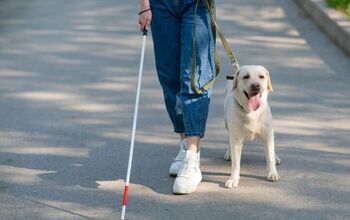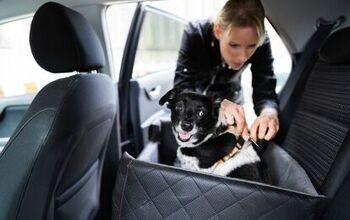Scientists Have Concerns About Doggy DNA Tests

More and more pet parents are using DNA test kits for dogs to see their pet’s genetic history, and this includes not only breed information, but health information as well. Some dog owners are finding out that their dogs carry mutations in their genes that are linked to conditions that could make their lives painful, and/or could even be fatal.
Geneticists are concerned about these tests, though, as pet parents are taking this information and using it to make health decisions for their pets.
Related: Mars Petcare Looks To Pioneer Genetic Testing For Canine Eye Disorders
Elinor Karlsson is an assistant professor of molecular medicine at the University of Massachusetts Medical School and said that the genetic information those kits may bring is powerful information, but the kits themselves are new tools and scientists aren’t fully sure of what they mean yet.
In a newly released paper, Karlsson sites a case where pet parents found out their 13-year-old pug had a mutation linked to a neurodegenerative disease that is like amyotrophic lateral sclerosis (ALS/Lou Gehrig’s Disease) in humans. The dog had been having trouble walking and having bathroom accidents so her humans bought a $65 genetic test made specifically for dogs. They feared that the symptoms were the beginning of a very ugly end, and so before it got that far, they chose to save their cherished family member from any future pain and put her to sleep.
The concern in that loving act is that the reliability of the genetic test may have made that decision one her parents may not have made, had they known that in actuality, that disease develops in as few as 1 in 100 dogs with the mutation, and that the dog’s symptoms may have been indicative of something more manageable for their dog and them.
Scientists fear those kits may urge pet parents to make decisions based on information that is not fully known and/or valid, and that could lead to the unnecessary loss of their pets.
Dr. Lisa Moses is a veterinarian at the Massachusetts Society for the Prevention of Cruelty to Animals-Angell Animal Medical Center and co-author of the paper. She said situations like that are not isolated as more vets and pet owners are relying on the results of these genetic test kits to make life-and-death decisions.
They’re concerned because business for those kits seems to be booming (guilty!) while the science behind them is still a new territory of unknowns. More and more veterinary chains are even recommending them, saying that they can help the vet offer individualized health care and give training advice even.
Karlsson says that to really get to the core of mutation or combinations of mutations and their relationship to conditions dogs will have, scientists have to do more large-scale studies with thousands of dogs. The bulk of the research done to back these genetic kits is based on small studies with little scientific backing and the accuracy and ability to predict health outcomes still has not been validated fully enough for them to suggest dogs’ lives should be based on results.
The authors of the paper recommend the genetic industry sharing studies with each other so researchers can read and evaluate and share information that will benefit all companies, and to train pet genetic counselors to give pet parents results with explanations, as well as train vets to understand the results and limitations as well.
They also recommend the genetic industry having standard methodologies for all dog testing genetics–ones that dictate consistent numbers of samples to be collected, shipped and analyzed. The research studies should have a certain number of participants to increase validity and accuracy. They also advise genetic companies to rate the seriousness of gene mutations so pet parents can be more informed about how likely something is to occur in their dog’s life.
Related: Study: Discovery Made to Genetic Link in Dog Disc Disease
The authors go on in their paper to say that the changes for dogs will also benefit humans as dogs are more and more models used for studying ‘human’ diseases like Alzheimer’s and cancer.
The researchers are not saying that pet parents should not use the kits, but that if they do, to know that an indication of a possible issue is not a complete picture of your pet’s overall health, nor is it a crystal ball for what will happen to your dog. They believe that if you are using the results to make health decisions for your pet, it is better to wait for the research behind the kits to be more tested and mature.
It really could mean life or death to your furry family member.

More by Lori Ennis























